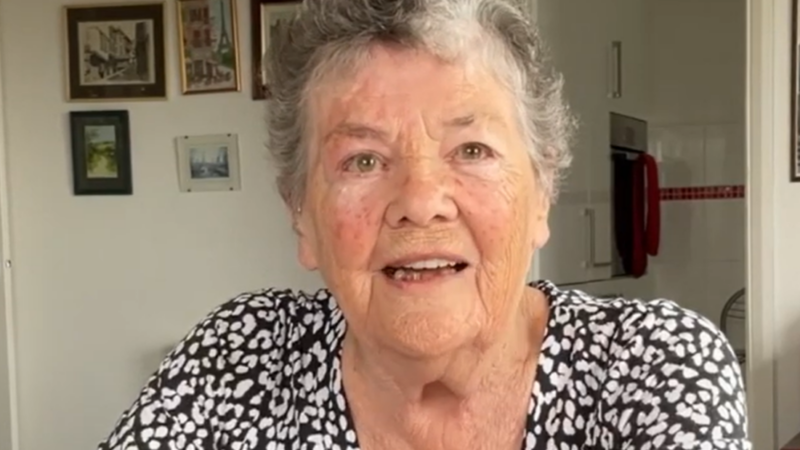The launch of the central Remote Monitoring Hub will eventually support virtual wards in all six boroughs, meaning people will monitored 24 hours a day by nurses, doctors and other clinicians.
The technology means that even the slightest change in someone’s health is picked up by nurses and doctors through a tablet which is also provided.
Established in February 2021, the Sutton Community Virtual Ward is built on the successful Community Response Team service, which started in 2020 and provided care and support to the most vulnerable unwell patients and families in their own homes during the early days of the Covid-19 pandemic.
Led by Sutton Primary Care Networks in partnership with Epsom and St Helier, and Sutton Health and Care, the aim of the virtual ward is to reduce unnecessary hospital admissions and length of stay.
Capacity for up to 100 ‘virtual beds’ at any time and length of stay in hospital has dropped by an average of two to three days, which has helped ease the pressure on acute beds at Epsom and St Helier Hospitals during a very busy time.
Patients admitted to the virtual ward are supported by multi-disciplinary teams (MDT) of specialists including GPs, hospital consultants, advanced nurse practitioners (ANPs), paramedics, social prescribers, pharmacists, social care professionals and MDT co-ordinators.
A care plan is put in place and patients’ care is co-ordinated via MDT “virtual ward rounds” which happen three-times a week. Patients’ records are updated immediately after each ward round and are available to all the professionals involved in their care.
Patients receive regular face-to-face visits from an ANP and following clinical assessments, enhanced support is provided via remote monitoring of vital signs – such as blood pressure, temperature, and oxygen saturation up-to-four times daily (or as recommended).
Patients are provided with remote monitoring devices which are assessed virtually by the patient’s GP and other members of the MDT. The remote technology means that any signs of deterioration in the patient’s condition can be treated very quickly and safely.
The virtual ward has kept me at home, able to cope and nursed me back to health. I think it’s a wonderful service.”
Sheila, 89-year-old Sutton Community Virtual Ward Patient
Sheila, an 89-year-old virtual ward patient, is delighted with the service. She said: “I was feeling quite ill, and I went to the doctor’s surgery, and he told me I had shingles. I didn’t realise just how bad one could feel with something so simple. But the nurse from the virtual ward came in to see me every day. The virtual ward has kept me at home, able to cope and nursed me back to health. I think it’s a wonderful service.”
The Sutton Community Virtual Ward has changed the way we practice medicine at St Helier.”
Dr Robert Odes, Consultant Physician Frailty Medicine, Epsom and St Helier University Hospitals NHS Trust
Dr Robert Odes, Consultant Physician, Frailty Medicine at St Helier Hospital, believes that the virtual ward has changed the way that the hospital practices medicine.
He said: “Before, patients spent many, many days in our hospital wards but now we can safely and efficiently discharge patients into the community where they receive their last three to four days of treatment in the community. Patients prefer it, their families prefer it and, importantly, we know it’s safe.”
Minal Karia, a Senior Primary Care Pharmacist who reviews patients’ medicines on the virtual ward, said: “We can look at all the medicines a patient is taking and make sure, for example, that they are taking the correct dose or if there are any drug interactions causing side-affects.
“Sometimes medications have been started but may not have been reviewed and the patient does not need to take them anymore. It’s as important to stop medications that aren’t needed as it is to start them when they are.
“So, we have a thorough review of medications with patients to see what they need to take and what they can safely stop.”
I feel a lot more confident in managing people who are discharged.”
Dr Anthony Ditri, GP at Chesser Surgery
Dr Anthony Ditri, GP at Chesser Surgery, who refers patients to the virtual ward, said: “With the virtual ward, for me personally, I feel a lot more confident in managing people who are discharged perhaps a little earlier than they otherwise might be. Patients are happier to be in their own home and they are less fearful.
“At the moment, I have a lady in her late 60s, who is really worried about going into hospital. With the virtual ward, we are able to keep her at home, with her family looking in on her. I am a lot more confident that she is safe staying at home and that she is getting the medical advice she needs. I am getting advice about her from the specialists at the same time and it’s working really, really well.”
